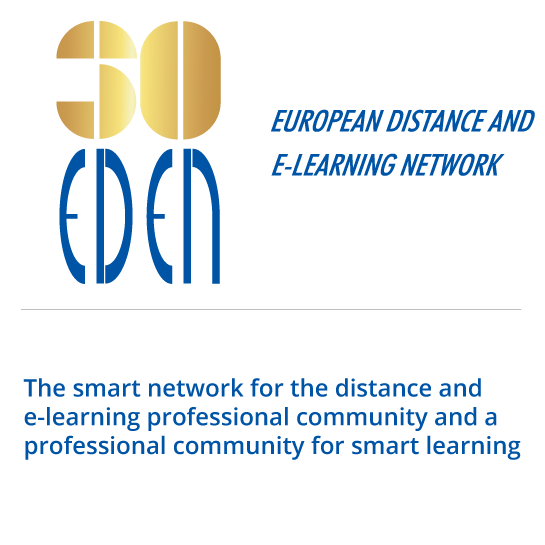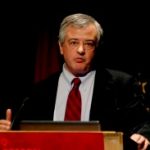 We are happy to announce that Alfredo Soeiro from the University of Porto, Portugal has been elected by the Annual General Meeting (AGM) in Bruges to serve as a new member of the Executive Committee of EDEN from June 2019.
We are happy to announce that Alfredo Soeiro from the University of Porto, Portugal has been elected by the Annual General Meeting (AGM) in Bruges to serve as a new member of the Executive Committee of EDEN from June 2019.


 We are happy to announce that Alfredo Soeiro from the University of Porto, Portugal has been elected by the Annual General Meeting (AGM) in Bruges to serve as a new member of the Executive Committee of EDEN from June 2019.
We are happy to announce that Alfredo Soeiro from the University of Porto, Portugal has been elected by the Annual General Meeting (AGM) in Bruges to serve as a new member of the Executive Committee of EDEN from June 2019.
A new publication on Promoting online training opportunities for the workforce in Europe has been published on the Europortfolio website.
This document is the interim report for the new European initiative on “Promoting Online Training Opportunities for the Workforce in Europe” (2017-2019) and has been prepared for the Executive Agency for Small and Medium-sized Enterprises (EASME) and the Directorate-General for Internal Market, Industry, Entrepreneurship and SMEs (DG GROW) of the European Commission.
This work is carried out by PwC, EDEN (the European Distance and E-learning Network) and Espace Mendès France. It presents the key findings from the activities performed during the first phase of the initiative (2017-2018). It contains a state-of-play analysis in the European Union with regard to the adoption of online training solutions by small and medium-sized enterprises (SMEs) for the acquisition of high-tech skills by the European workforce. It specifically presents a description and in-depth analysis of the market and policies and initiatives on online training for the workforce in specific Member States, as well as inputs for a common vision – towards 2030 – based on stakeholder contributions.
Finally, it addresses key challenges, mitigation measures and proposed solutions. It is very difficult for SMEs to find, attract and retain skilled workers especially in high-tech fields. In addition, they typically cannot afford significant training costs requiring long periods of absence of their staff. However, upskilling and reskilling is of key importance for them, as new technological developments quickly make existing knowledge and skills obsolete. New online training developments offer promising opportunities in this respect as they can provide a more flexible, cost-effective and efficient way to train staff. Online training has already become an invaluable resource for most established, large-scale businesses. The adoption of online training solutions by SMEs happens at a slow pace, as the market – in spite of considerable progress – remains immature. This will change in the coming years, as new developments enabled by artificial intelligence (AI) and pedagogical innovation will foster the emergence of powerful online learning platforms and solutions. In order to stay competitive, SMEs need to embrace the emerging education and training revolution and develop a culture of open learning, just in time and just for me training.
https://www.clustercollaboration.eu/news/skills-industry-strategy-promoting-online-training-opportunities-workforce
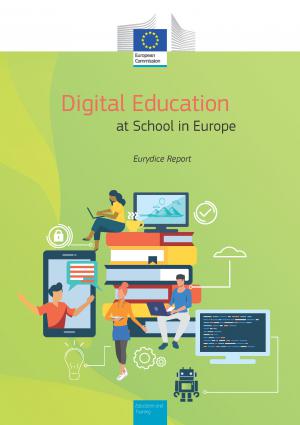
Acknowledging the key role school education plays in preparing young people for a tech-driven world, this report sheds light on two different but complementary perspectives of digital education: the development of digital competences relevant to learners and teachers on the one hand, and the pedagogical use of technologies to support, improve and transform learning and teaching on the other.
The report provides indicators on the development of students’ digital competence through school curricula and teacher-specific digital competences, the assessment of students’ digital competences and the use of technology for assessment in general, and finally, on the strategic approaches to digital education and specifically policies supporting schools in this matter.
While the four main chapters provide policy-makers, researchers and the education community with comparative information on the current school digital education policies across Europe, the annexes add specific information by country, on school curricula, teacher competence frameworks, top-level strategies and agencies supporting digital education at school.
The Eurydice brief is also available here.
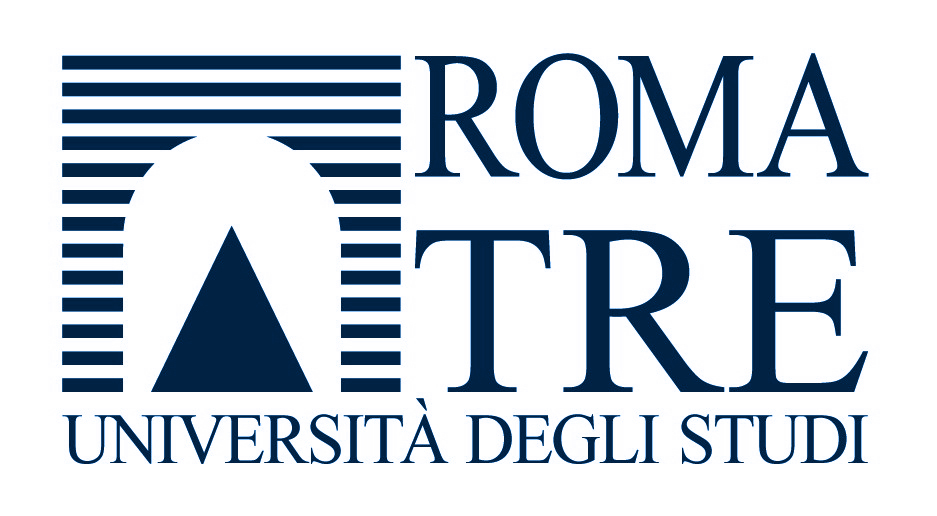
Roma Tre University has launched the Call for admission to the 35th cycle of the Ph.D. programme. One scholarship is reserved for foreign students to attend a PhD course at Roma Tre University on Culture Education Communication.
Applications will expire on 20 August, 2019 (2PM CET).

The European University Association (EUA) is in the process of renewing its leadership, notably by appointing a new Secretary General to succeed Lesley Wilson, who will step down after 19 years of remarkable service.
EUA plays a crucial role in influencing EU and national policies on higher education and research, provides 800+ member universities with a forum for dialogue and promotes best practices through project collaborations, conferences, publications and other activities. With more than 20 million learners, researchers and teachers, its member institutions are diverse, yet share a common mission to create knowledge, shape the next generation of world citizens and foster innovative regional communities.
The EUA Board seeks to appoint a new Secretary General who will be an ambassador for all members, presenting a collective vision of strong universities in Europe. Reporting to the EUA President and Board, the Secretary General will co-create and implement the Association’s strategic plan and work closely with the leadership of national rectors’ conferences to advance areas of common interest. The Secretary General will also lead a team of 40 staff across offices in Brussels and Geneva, overseeing a €5 million operating budget.
Lesley Wilson has been with EUA since its creation, serving as Secretary General since 2002. She built up a highly qualified team of experts in higher education and research, profoundly believing in Europe and the power of European higher education to bring people together. This has been the success of EUA: uniting individual members and working closely with the national rectors’ conferences. The Association was present at the beginning of the Bologna Process and is a valued member. Similarly, EUA has been engaged in EU research programmes since its start, supported by the Research Policy Working Group.
Prior to leading EUA, Lesley Wilson held a number of senior positions in higher education and research management at the European level, in particular as Director of UNESCO’s European Centre for Higher Education in Bucharest (UNESCO-CEPES); Head of the newly-established Science Policy Unit at the European Science Foundation in Strasbourg; and Director of the EC TEMPUS Office in Brussels.
For further details on the recruitment process for the post of EUA Secretary General, including required qualifications, skills and experience, please visit: https://candidates.perrettlaver.com/vacancies quoting reference 4247.
The closing date for applications is Monday, 2 September 2019 at 12:00 CEST.
For more information, please contact: Jessica Carter, EUA Press & Comms Manager

Ferenc Tatrai, the senior advisor of the consortium member EDEN presented the OEPass project, pointing out its natural synergy with its “twin” project MicroHE.
As part of the OEPass project, the Learning Passport was also introduced.
He emphasized that the Learning Passport is ready to start the piloting phase- Everybody is welcome to experiment with the Learning Passport and determine its usefulness by filling in the form. The OEPass partnership also welcomes feedback on how well the Learning Passport facilitates the recognition and transferability of non-traditional learning experiences.
The OEPass project creates a standard format for describing open education and virtual mobility experiences in terms of ECTS which:
For more information on the OEPass project, please, visit its website.
The significant public results were listed as:
The project will
– Elaboration of an outline an ontology for the recognition of open-learning, together with a meta-data standard and technology roadmap, which would allow for the automatic exchange of credit between European Higher Education Institutions
The audience got the link to create hands-on experience and feel the ease or potential difficulties in using the Learning Passport
Jochen Ehrenreich, the co-author of the presentation supported the discussion on the subject of micro-credentials.

Actually, this is a favourite saying by my university. It found the most appropriate place here in this blog post dedicated to summarise the main achievements by EDEN, its Governance and the Community in three years perspective. These achievements may be summarised and presented in two most important strategic steps taken: to consolidate the Community and to revisit and reshape practices, services and European policies in education. These steps supported EDEN developments in line with the EDEN Constitution. They were implemented through collaborative leadership and partnership, and resulted in the impressive picture we have today of our association.
There exist example practices which highlight the challenges raised for organizational leaders. One of these challenges is to find a way to answer the question – how flexible the organization can be in terms of individual group initiatives, and how strict it should be in terms of tradition, how new initiatives are in line with the existing ones, how integral they are or should be.
The winds of change in societal developments described by M. Castells and Van Dijk, a “self-expanding network” of the community finally moved to continuous “space of flow” in “timeless time”. Besides physical traditional events, the “real virtuality” was implemented through new initiatives for virtual events started in EDEN in 2016, introducing European Distance Learning Week (#EDLW), European Open Education Week, but also the series of webinars by EDEN NAP Steering Committee.
These new initiatives consolidated the EDEN community, receiving attention and contributions from new members and experts from the European and global arena. #EDLW embraced latest trends, developments, historical and futuristic perspectives – amazing list of intellectual – discussion records and resources available!
If success factors were identified for the initiatives above, the following could be mentioned:
Read the full post on the President’s Blog.

As part of the OEPass project, the draft version of the Learning Passport has been finalised. Everyone is welcome to experiment with the Learning Passport and determine its usefulness by filling in the form. The OEPass partnership welcomes feedback on how well the Learning Passport facilitates the recognition and transferability of non-traditional learning experiences. Read more…

Roma Tre University has launched the Call for admission to the 35th cycle of the Ph.D. programme. One scholarship is reserved for foreign students. Applications will expire on 24 July, 2019 (2PM CET).
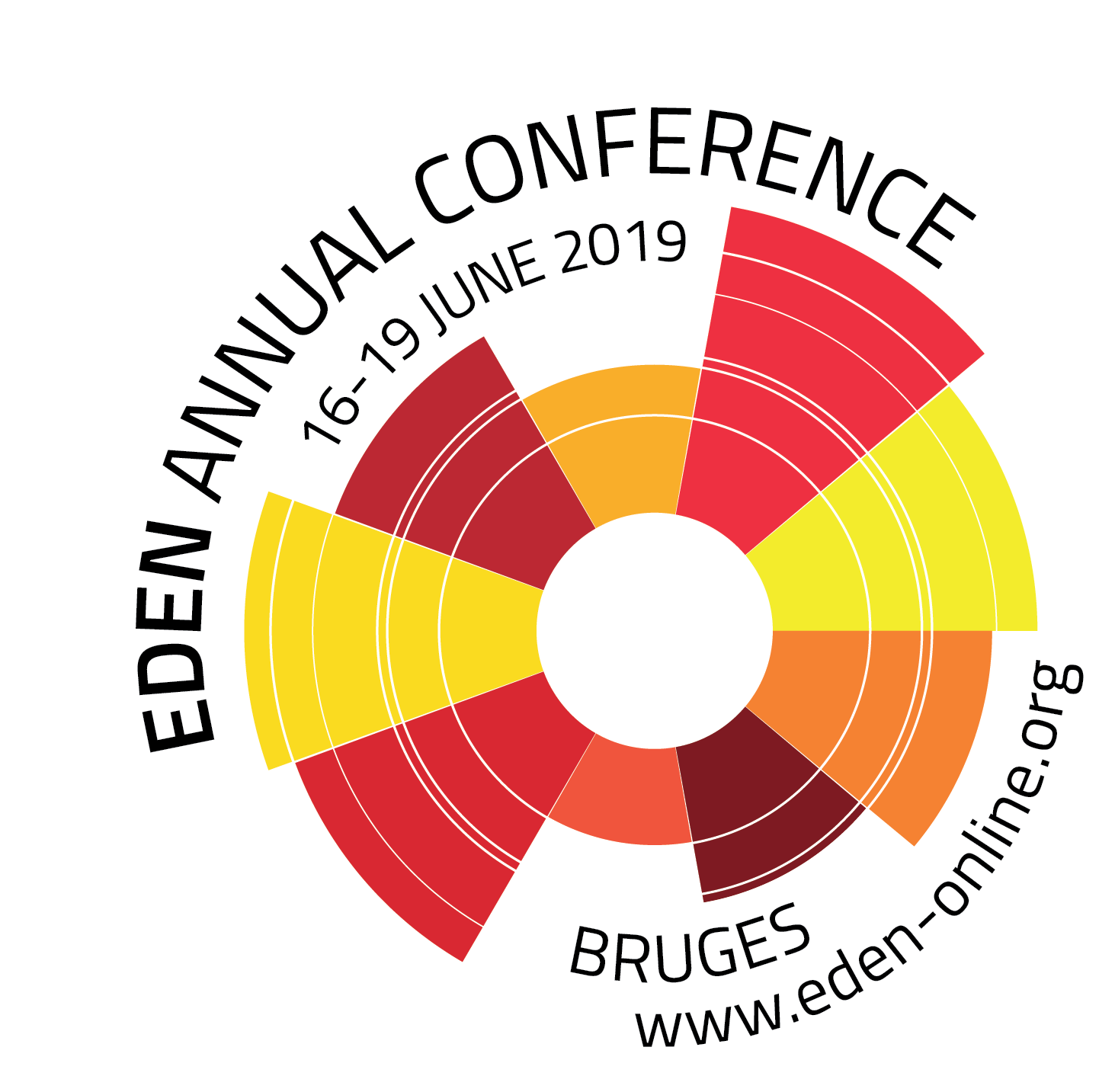
Since 2008, EDEN is continuously granting the Best Research Paper Award at EDEN’s Annual Conferences as well as at EDEN’s bi-annual Research Workshops. A high-quality standard selection process shall guarantee the branding of a distinguished and reputable award for scholarly conference papers in the field of open, distance and e-learning.
The selection process takes place in collaboration with the Ulrich Bernath Foundation for Research in Open and Distance Learning and is supported by a Jury, approved by the EDEN Executive Committee.
Members of the Jury for the 2019 EDEN Best Research Paper Award to be granted at the EDEN Annual Conference in Bruges are
Of all conference papers submitted and completed by the extended deadline for submissions on April 7th 2019, 23 Conference papers were short-listed for the competition and evaluated against the following criteria:
In addition, the authors needed to confirm that at least 30% of their paper has been originated for and at least one author has registered for participation at the 2019 Annual EDEN Conference in Bruges.
The Jury nominated the following FINALISTS (listed along the programme schedule):
A1: Human Capital in Online Higher Education Settings: a Socio-Educative Perspective Applied to Graduates of an Online University by Riccardo Valente, Albert Sánchez Gelabert, Josep M. Duart, Universitat Oberta de Catalunya
B3: Digital versus manual. Two sides of the same coin by Ingrid le Roux, University of Pretoria, South Africa
B3: The instructional design of an online learning environment (RISSC) for Upper secondary school students’ research skills by Louise Maddens123, Fien Depaepe123, Annelies Raes123, Jan Elen12, KU Leuven & KU Leuven Campus KULAK Kortrijk1, Centre for Instructional Psychology and Technology2, ITEC, KU Leuven, also at imec3, Belgium
C3: Approaches and methodologies to support critical reflection by Jean Claude Callens, VIVES, Belgium
C3: Exploring the Emotions of Distance Learning Students in an Assessed, Online, Collaborative Project by Jake Hilliard, Karen Kear, Helen Donelan, Caroline Heaney, The Open University, United Kingdom
D3: Back to the future, the learner strikes back: feedback and reflection as key elements in MOOC re-design by Conchúr Mac Lochlainn, Dublin City University, Mairéad Nic Giolla Mhichíl, Dublin City University, Elaine Beirne, Dublin City University, Mark Brown, Dublin CityUniversity, Ireland
D4: Future Skills and higher education “Future Skill readiness” by Ulf-Daniel Ehlers, Baden-Wurttemberg Cooperative State University, Germany
E3: Automatic Transcription software: Good enough for accessibility? A case study from Built Environment Education by Tharindu R. Liyanagunawardena, University College of Estate Management, UK
Previous winners of the EDEN Best Research Paper Award:

